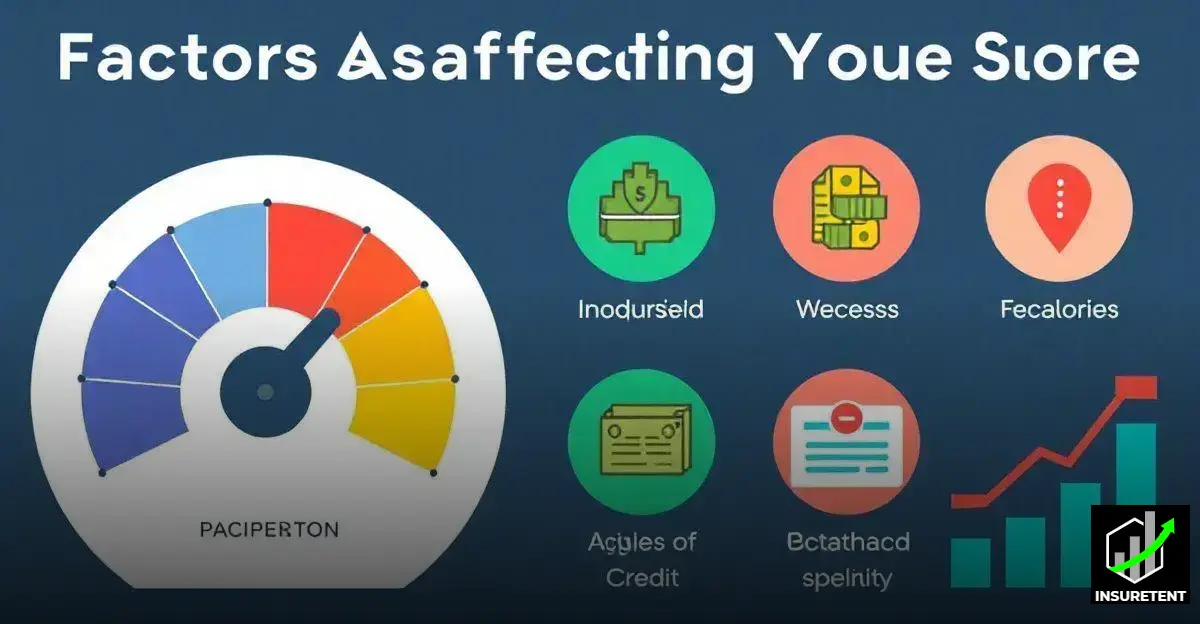How to gain good credit score is a question many people ask as they seek financial stability.
A strong credit score can open doors to loans with better terms and rates.
Understanding Credit Scores
Understanding credit scores is essential for anyone aiming to make informed financial decisions.
A credit score is a numerical representation of your creditworthiness, typically ranging from 300 to 850. Lenders use this score to evaluate the risk of lending money to individuals. Higher scores usually indicate better credit risk, which can lead to favourable loan terms and lower interest rates.
Credit scores are calculated based on factors such as payment history, the amount of debt you owe, the length of your credit history, types of credit used, and new credit inquiries. Payment history is the most significant factor, accounting for roughly 35% of your score. It is vital to pay your bills on time to maintain or improve your score.
The amount of debt you have, known as credit utilisation, also plays a crucial role, constituting about 30% of your score. It is advisable to keep your credit utilisation below 30% of your total credit limit.
Additionally, the length of your credit history (15% of your score) shows lenders how experienced you are with managing credit. A longer credit history generally improves your score.
Finally, managing a mix of credit types (like credit cards and loans) and limiting the number of new credit inquiries can further enhance your credit score. Always be proactive in checking your credit report and understanding its components.
Factors Affecting Your Credit Score

Several factors affect your credit score, each playing a unique role in determining your overall creditworthiness. The most significant factor is your payment history, which accounts for about 35% of your score. This highlights the importance of making timely payments on your debts, as late payments can severely impact your credit rating and help you gain good credit score.
Another critical factor is your credit utilisation, which reflects how much of your available credit you are currently using. Keeping this ratio below 30% is advisable; the lower the utilisation, the better it looks to lenders. More than just borrowing, it shows them that you can manage your credit responsibly and gain good credit score.
The length of your credit history is another important aspect. This factor is responsible for roughly 15% of your score. It is beneficial to maintain old credit accounts, as a longer history tends to improve your score. Lenders feel more confident lending to someone who has demonstrated a longer track record of good credit behaviour.
In addition, the types of credit you use can also have an impact, accounting for about 10% of your score. A mix of revolving credit (like credit cards) and installment loans (such as car loans or mortgages) can show lenders that you can handle different forms of credit.
Lastly, new credit inquiries can affect your score as well, comprising about 10%. When you apply for new credit, lenders will do a hard inquiry on your report, which can cause a slight dip in your score. Limiting the number of new applications can help maintain your score during critical periods when you may want to borrow.
Understanding these factors is crucial for anyone looking to improve their credit score, as they provide a roadmap for applying better credit practices.
How to Improve Your Credit Score
Improving your credit score is essential for accessing better financial opportunities. Start by regularly checking your credit report for any errors. If you find inaccuracies, dispute them promptly, as these can negatively impact your score.
Additionally, always make payments on time. Setting up automatic payments for bills can help ensure you never miss a due date.
Consider reducing your credit utilisation ratio by paying down existing debts. This ratio measures how much credit you are using compared to your total credit limit. Keeping it below 30% is ideal. If possible, ask for a credit limit increase, but avoid adding new debt to balance this out.
Diversifying your credit mix by having both installment loans (like car or personal loans) and revolving credit (such as credit cards) can also positively influence your score. Maintain older accounts to strengthen your credit history’s length, as this can benefit your score.
Lastly, limit the number of new credit applications. Each application triggers a hard inquiry, which can temporarily lower your score. By following these steps, you can systematically work towards improving your credit score over time.
Common Credit Score Myths

There are many common credit score myths that can mislead individuals trying to improve their financial health. One prevalent myth is that checking your own credit score will harm it. In reality, this is known as a soft inquiry and does not affect your score.
Another myth is that carrying a balance on your credit card improves your score. In fact, maintaining a balance can increase your credit utilisation ratio, which may lower your score. It’s best to pay off your credit card every month.
Some people believe that closing old accounts will boost their credit score. However, this can actually harm it by reducing your overall credit history length. Older accounts demonstrate your credit management experience.
There are also misconceptions about credit repair services. Many people think these services can magically fix their credit issues; however, most issues can be resolved by individuals themselves through consistent financial behaviour.
Lastly, some believe that student loans do not impact their credit score. In truth, student loans are a form of instalment credit and can influence your credit score just like any other loan. Therefore, it’s important to manage them responsibly.
Monitoring Your Credit Report
Monitoring your credit report is vital for maintaining a good credit score. You should check your report at least once a year to ensure all information is accurate.
Mistakes on your credit report can lower your score and affect your ability to get loans. You are entitled to one free credit report every year from each of the major credit reporting agencies. Take advantage of this to track your credit history.
Another important aspect to consider is that monitoring your credit report allows you to spot any signs of identity theft. If someone else is using your personal information to open accounts, it can severely damage your credit score. If you notice unfamiliar accounts, take immediate action to dispute them and protect yourself.
Keeping a close eye on your spending habits and credit applications is also essential. Frequent applications for new credit can negatively impact your score due to multiple hard inquiries. Limit your applications and only seek credit when necessary.
Lastly, consider enrolling in a credit monitoring service. Many services offer alerts when there are changes to your credit report. This proactive step enables you to take quick action on any discrepancies, ensuring your credit stays healthy. By staying informed and vigilant, you can significantly boost your chances of achieving a good credit score.
Benefits of a Good Credit Score

Having a good credit score comes with many benefits. First, it can open doors to better loan options. Lenders are more likely to offer lower interest rates to individuals with higher scores. This means lower monthly payments on loans, making it easier to manage your finances and gain good credit score.
Another significant advantage is increased chances of loan approval. A strong credit score indicates to lenders that you are responsible with credit, making them more willing to lend you money for a home, car, or personal loan, helping you gain a good credit score.
Additionally, a good credit score can help you when applying for rental applications. Many landlords check credit scores to decide whether to rent to potential tenants. A score above average can make you a more appealing candidate.
Another benefit includes the ability to secure lower insurance premiums. Some insurance companies may use your credit report as one of the factors in determining your rates, meaning better credit can lead to lower costs.
Finally, a good credit score gives you peace of mind knowing you have the financial stability and flexibility to handle unexpected expenses or opportunities. With a good score, you can tackle loans and credit with confidence.
Achieving Financial Stability Through a Strong Credit Score
Remember that the benefits of a good credit score are significant, impacting everything from loan approvals to insurance premiums. By staying informed and proactive, you can achieve the financial stability you desire and gain good credit score.
Ultimately, building and maintaining a good credit score not only opens doors for better financial opportunities but also gives you peace of mind in your financial decisions.
